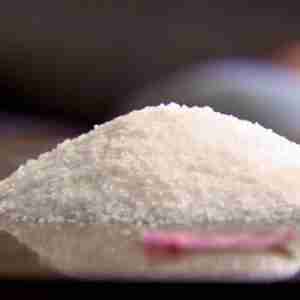Ketamine Crystal Powder
Ketamine Crystal Powder
Ketamine is a white, crystalline powder or clear liquid. Buy Ketamine Crystal Powder for Sale Online.
Synonyms of Ketamine Crystal Powder
(+/-)-2-(2-chlorophenyl)-2-(methylamino)-cyclohexanone; Ketalar®, Ketaject®, Ketaset®, Vetalar®; K, Special K, Vitamin K, Lady K, Jet, Super Acid, Bump, Special LA Coke, KitKat, Cat Valium. Buy Ketamine Crystal Powder for Sale Online.
Source of Ketamine Crystal Powder
Available by prescription only, and is commercially available as a veterinary anesthetic. It is difficult to synthesize clandestinely and is usually stolen from veterinarian offices or diverted from legitimate pharmaceutical sources in liquid form. Ketamine is currently a schedule III controlled substance in the US.
Drug Class
Dissociative anesthetic, hallucinogen, psychotomimetic.
Medical and Recreational Uses of Ketamine Crystal Powder
Primarily used in veterinary applications as a tranquilizer. Also used as an anesthetic induction agent for diagnostic and surgical procedures in humans, prior to the administration of general anesthetics. Occasionally used as a short-acting general anesthetic for children and elderly patients. Recreationally used as a psychedelic and for its dissociative effects.
Potency, Purity and Dose
Ketamine is available as a racemic mixture with the S-(+)- isomer being more potent than the R-(-)- isomer. Commercially supplied as the hydrochloride salt in 0.5 mg/mL and 5 mg/mL ketamine base equivalents. For induction of 5-10 minutes surgical anesthesia, a dose of 1.0-4.5 mg/kg is intravenously administered; 6.5-13 mg/kg is given intramuscularly for 12-25 minutes of surgical anesthesia. The liquid from injectable solutions can be gently heated to evaporate the water, leaving a white powder (ketamine hydrochloride) which can be snorted or orally ingested. Recreational doses are highly variable. Common doses are 25-50 mg intramuscularly, 30-75 mg snorting, and 75-300 mg oral. Snorting a small line (“bump”, 30-50 mg) usually results in a dreamy effect. “K-hole” can be obtained following a dose of 60-125 mg intramuscularly, or by snorting 100-250 mg. Impurities are rarely seen, although ketamine hydrochloride itself can be used as a heroin adulterant. Buy Ketamine Crystal Powder for Sale Online.
Route of Administration
Injected, snorted, orally ingested, and rectally administered. Similar to phencyclidine (PCP), ketamine can be added to tobacco or marijuana cigarettes and smoked.
Pharmacodynamics
Involves analgesia, anesthetic and sympathomimetic effects that are mediated by different sites of action. Non-competitive NMDA receptor antagonism is associated with the analgesic effects; opiate receptors may contribute to analgesia and dysphoric reactions; and sympathomimetic properties may result from enhanced central and peripheral monoaminergic transmission. Ketamine blocks dopamine uptake and therefore elevates synaptic dopamine levels. Inhibition of central and peripheral cholinergic transmission could contribute to induction of the anesthetic state and hallucinations. Ketamine is structurally similar to PCP, but 10-50 times less potent in blocking NMDA effects.
Pharmacokinetics
Bioavailability following an intramuscular dose is 93%, intranasal dose 25-50%, and oral dose 20±7%. Ketamine is rapidly distributed into brain and other highly perfused tissues, and is 12% bound in plasma. The plasma half-life is
2.3 ± 0.5 hours. Oral administration produces lower peak concentrations of ketamine, but increased amounts of the metabolites norketamine and dehydronorketamine. Ketamine and its metabolites undergo hydroxylation and conjugation. Norketamine produces effects similar to those of ketamine. There are no significant differences between the pharmacokinetic properties of the S-(+) and R-(-)-isomers.
Molecular Interaction / Receptor Chemistry
Cytochrome P450 3A4 is the principal enzyme responsible for ketamine N-demethylation to norketamine, with minor contributions from CYP2B6 and CYP2C9 isoforms . Potential inhibitors of these isoenzymes could decrease the rate of ketamine elimination if administered concurrently, while potential inducers could increase the rate of elimination.
Interpretation of Blood Concentrations
There is no direct correlation between ketamine concentrations and behavior. Drowsiness, perceptual distortions and intoxication may be dose related in a concentration range of 50 to 200 ng/mL, and analgesia begins at plasma concentrations of about 100 ng/mL. During anesthesia, blood ketamine concentrations of 2000-3000 ng/mL are used, and patients may begin to awake from a surgical procedure when concentrations have been naturally reduced to 500-1000 ng/mL.
Interpretation of Urine Test Results
Urinary excretion of unchanged drug is 4±3%, and ketamine use can be detected in urine for about 3 days. Concentration ranges for ketamine in urine have been reported as low as 10 ng/mL and up to 25,000 ng/mL.
Effects of Ketamine Crystal Powder
Users have likened the physical effects of ketamine to those of PCP, and the visual effects to LSD.
Psychological
Decreased awareness of general environment, sedation, dream-like state, vivid dreams, feelings of invulnerability, increased distractibility, disorientation, and subjects are generally uncommunicative. Intense hallucinations, impaired thought processes, out-of-body experiences, and changes in perception about body, surroundings, time and sounds. Delirium and hallucinations can be experienced after awakening from anesthesia.
Physiological: Anesthesia, cataplexy, immobility, tachycardia, increased blood pressure, nystagmus, hypersalivation, increased urinary output, profound insensitivity to pain, amnesia, slurred speech, and lack of coordination.
Side Effect Profile
High incidence of adverse effects, including anxiety, chest pain, palpitations, agitation, rhabdomyolysis, flashbacks, delirium, dystonia, psychosis, schizophenic-like symptoms, dizziness, vomiting, seizures, and paranoia.
Duration of Effects
Onset of effects is within seconds if smoked, 1-5 minutes if injected, 5-10 minutes if snorted and 15-20 minutes if orally administered. Effects generally last 30-45 minutes if injected, 45-60 minutes if snorted, and 1-2 hours following oral ingestion. Ketamine is often readministered due to its relatively short duration of action. Some subjects may experience dreams 24 hours later. Marked dissociative effects, schizotypal symptoms and impaired semantic memory are found in some recreational users days after drug use. Buy Ketamine Crystal Powder for Sale Online.
Tolerance, Dependence and Withdrawal Effects
In long-term exposure, high tolerance, drug craving, and flashbacks are described. Little evidence of a physiological withdrawal syndrome unless abrupt discontinuation in chronic users.
Drug Interactions
Midazolam attenuates altered perception and thought processes. Lorazepam may decrease ketamine-associated emotional distress but does not decrease cognitive or behavioral effects of ketamine. Acute administration of diazepam increases the half-life of ketamine. Lamotrigine significantly decreases ketamine-induced perceptual abnormalities, but increases the mood elevating effects. Haloperidol may decrease impairment by ketamine in executive control functions, but does not affect psychosis, perceptual changes, negative schizophrenic-like symptoms, or euphoria. Alfentanil is additive to ketamine in decreasing pain and increasing cognitive impairment. Physostigmine and 4-aminopyridine can antagonize some pharmacodynamic effects of ketamine. Buy Ketamine Crystal Powder for Sale Online.
Showing the single result

